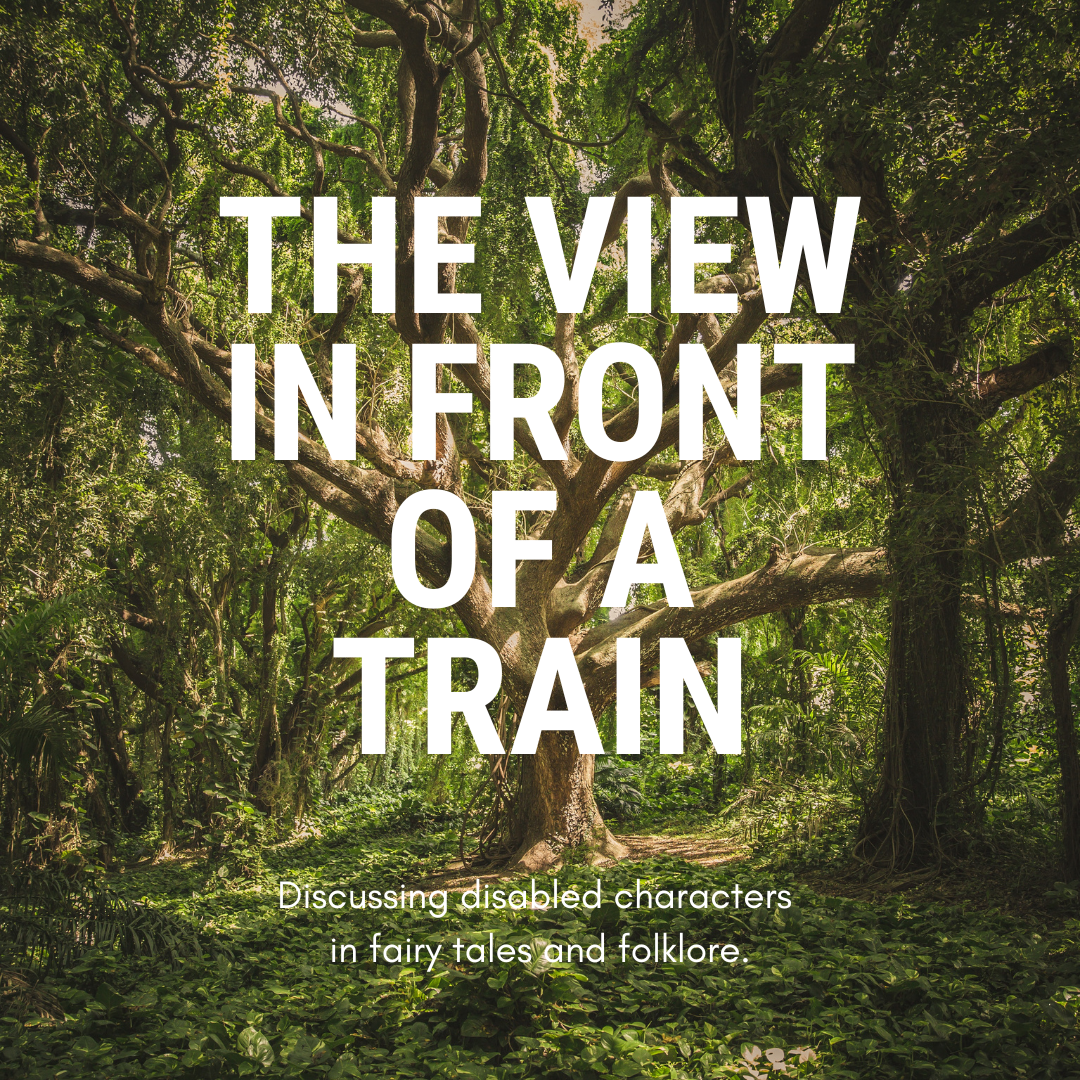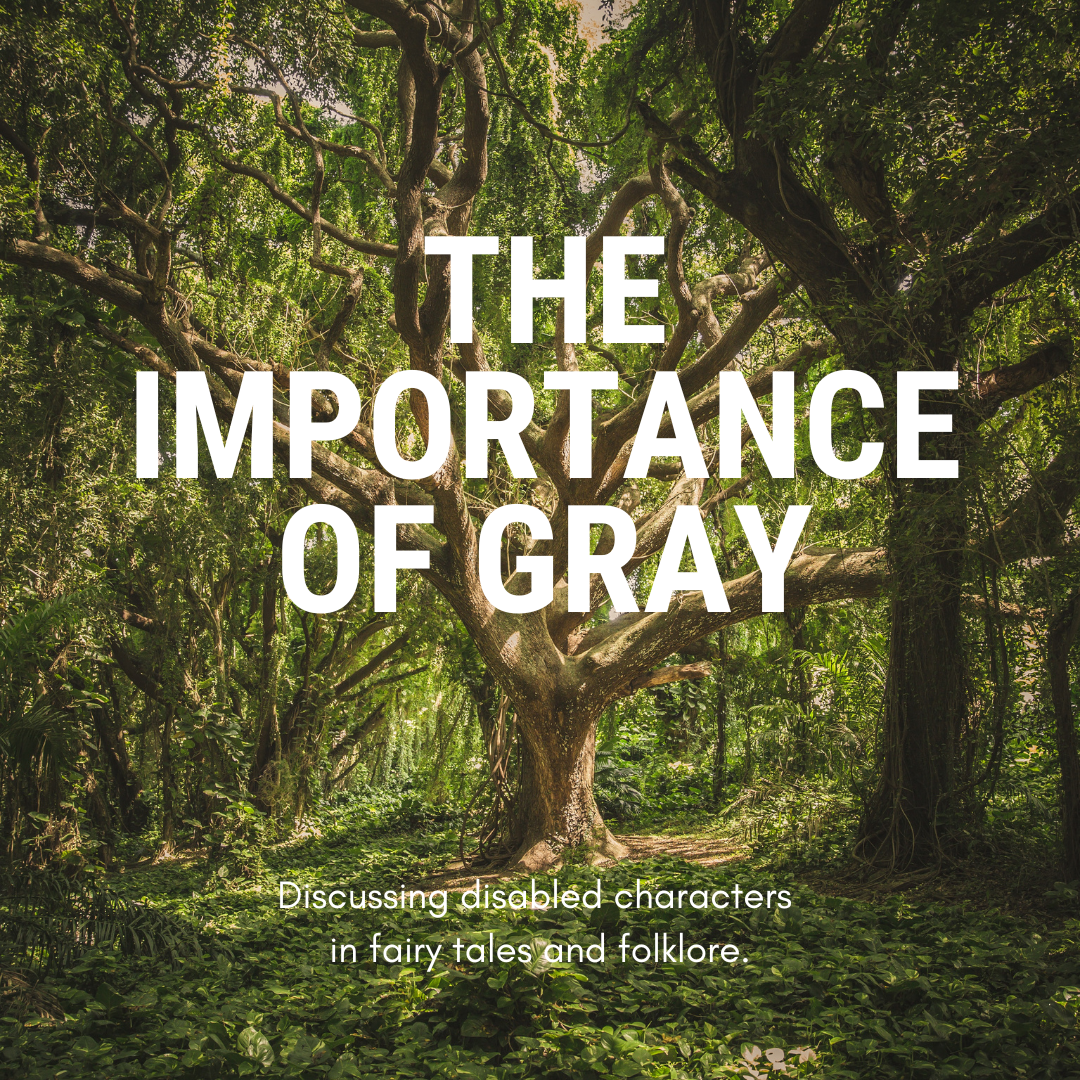|
CW: Suicidal ideation and (unsuccessful) suicide attempt, mental illness, gore. The noonwraith floated next to her grandmother’s coffin. Her white dress swayed in the absent wind, the blood from her scythe dripped onto the black earth. Maria could not see her face, for it was covered by blinding sunlight. A sickening heat came across her body, rising from her chest to her head. The strength left her limbs. White flashes dotted her sight. She could no longer see the casket, the noonwraith, the mourners surrounding her. She awoke not long later, slumped against the walls of the wooden church. Heatstroke, her father said. It had been a hot spring afternoon, and the sun beating down on the funeral guests caused Maria to pass out. Her grandmother’s death was also a reason, he insisted. Maria was not stupid. At the wake, she heard the whispers from her family’s neighbors and the rumors that swirled around the village when she refused to leave her house for months. Mad and cursed was what they called her, and she believed them. # “Marysia, you do not need to get married,” said her mother over a small dinner of potato pierogi. That did not comfort her. The thought of a man touching her during her wedding night made her feel an unease that she could not explain to anyone. Tap. “The Dudeks down the road have a cousin who went to America,” said her father. “Where did he go, kochanie?” Tap. “Chicago,” said her mother. “He took a ship from Hamburg. But he found a job within a week. Why, at this rate he will be richer than all of us in Piechoty combined!” Tap. Maria muttered that she would think about it. Chicago, Hamburg, all places she could never hope to see. But perhaps her mother had a point. Their potato stores were dwindling, and her grandmother’s funeral was a large expense even with help from others. Yet, the journey across the sea would cost even more, and she was already ashamed that her parents spent money on her when she did not deserve it. Tap. Her parents heard nothing. Metal screeched as it slid against the walls of the house to the window behind her parents. The hook of a bloody scythe slid across the window frame, hooking it like a grotesque animal claw. # Years before, the entire village had come out to see the building of the new train tracks going north and south. There was no rail station; there was no use putting one in a village such as Piechoty, but Ewa loved to see the trains passing by. “I’m going to be on those one day,” she had said. A train drove by like thunder, the smoke from its stack belching like a dragon’s mouth. It was a hot summer’s day, and the two girls were sitting down in a gold field of rye. Maria wondered where she would even go, the world was so small. “Kraków,” Ewa said with a smile. Her lips were as red as strawberries, and her blue eyes sparkled with dreams Maria could not hope to comprehend. “Or better, Vienna.” All those cities were far, far from Piechoty and Maria. “Good.” Ewa stood up, her dark braid bouncing against her back. “The further, the better. Jan agrees.” The name of Ewa’s betrothed shot a pang through Maria’s heart. # Maria walked along the tracks. The gravel crunched underneath her boots and the hot sun bore onto her back. The ground vibrated. In the distance, a train was coming behind her. “Why are you telling me this?” Ewa’s voice shouted in her ear. Because Ewa was getting married and leaving next week. Because Ewa was the most beautiful person she had seen. Because Maria did not want Ewa to forget about her. “I do not know what you want me to do!” Ewa had stepped backwards onto the tracks, and Maria felt that thunderous rumbling, and she could not scream. The train whistle drowned the silence in her ears, a crunch she never forgot. Red, bones, and brain splattered her dress. She could see the train wheels turn in front of her now. The ground shook, splitting like Hell coming for her and her sins. This was not what she wanted; this was not what she thought would happen. The wind blew quick and hot into her face, and the world gave out from under her. # Maria had not yet died. She lay face-first in the field, her nose tickled by stalks of grain and her fist clenched in black earth. She turned onto her back, and the noonwraith loomed over her, blocking out the midday sun. The blinding light had left her face. Souls could only return from the dead in two ways—on All Souls’ Day or dying a violent death. Noonwraiths had been killed before their wedding days. Ewa smiled at her in relief and reached out her bony hand. Maria did not recognize that touch. Ewa was not the one to push her out of the way. The train had left now, heading to its destination far to the south and where the tracks’ journey continued to lands beyond. # There were many young Polish women at the garment factory. Quite a few of them came from Galicia like her, and almost all of them came to America in the past two years. She was introduced to them when she started, but she kept her head down and voice low. The work was hard, and the pay was low. Besides, she did not have very interesting things to say. The sound of the sewing machines buzzed in her ears as much as the voice of the woman next to her. Maria learned more English listening to Margaret Ryan than in the small language book she read while traveling. “Maria, do you want to go to Schaller’s for something to eat?” said Margaret one Friday. She had taken off her head covering to reveal hair the color of chestnut. Maria could only stammer a small “good” in response. South Side of Chicago burst with life: men returned from the stockyards, children played in the streets, the sound of Polish, Slovak, Lithuanian swelled in the air as much as the ringing of streetcars. Maria stepped out into the cold autumn evening, and a warm breeze touched her cheeks, gentle as a kiss.
0 Comments
Look it, have you ever woken, in the dead of night? It’s so dark, that for a second, just a split second, you think you’ve died. And you’re so scared. And you lie there and you feel so horrible, and so…alone, and all that crap you know? Yeah, well, with every step I took, it felt like I was walking to the place where all those horrible feelings were born. Its funny isn’t it, the way the human mind works? Memories, they're just faded shadows is all just faded shadows, that we dwell in every so often. I mean, it was just a corridor, just a walk down a corridor, and yet it’s that that sticks out. I remember the rest, obviously, of course I remember. But it’s all a blur, you know? I almost…trained myself, I suppose, not to think about it…everything. And I don’t, you know, I get on with my life, but it’s walking down that Godforsaken Corridor, it sneaks up on me. And it’s so clear. Every step I took echoed and I can still hear it echoing in my mind. Who the hell am I to complain, there’s so many others going through so much worse than me. Look, I don’t want to talk about it ok, or, or need to. I don’t want to waste another day. I don’t want a hug. I don’t want a tissue. I don’t want to rent your shoulder to cry on. I just, I just… I just thought I’d tell you about the corridor, cause’ I think, it’s a bit mad, that that’s the one thing that sticks out. Yeah, I freaked out ok? You don’t get it. It was so messed up down there. It was like a forgotten place. It’s stupid, but it felt like I couldn’t smile down there, because no one ever did or something. And with every step I took, I felt like, once I got to the end, I couldn’t go back. I’d be stuck there. Which is stupid, cause’ all I ever had to do was ask the nurse and make some bullshit small talk with her, while she took forever to type out that code, and let me out. But sometimes, I’d think, if she can’t get out, then neither can I. Who decided she should stay and I should go. Stupid, so stupid, I know, she’s in the best place…or so I’ve been told. But she can’t decide when to go, you know? And even if she could, she’s locked in her own mind, and I swear, if I knew how to make her better… but I didn’t. I don’t know. And I’d give anything to make her better. And maybe if she got better, she wouldn’t look so sad anymore. You know we were chatting once, she was in there a couple of months at this point and we were just chatting, and she said “you look wrecked, are you sleeping?” so I told her, cause’ she asked, I told her about waking in the dead of night, and it being so dark and thinking I’ve died for a split second and being so scared…and she told me, she said to me, that when she get’s that feeling, when she wakes, and it’s so dark that she thinks she’s died…she’s relieved. Look, I wasn’t the first, and I certainly won’t be the last, but when you see someone walking down that corridor…and I saw this one girl. And she was so small. And so young. And I would bet a diamond to a dollar, that she didn’t know she was crying when she walked down that same corridor. And I wonder now, looking back, did I? Sitting on the bus this all spilled through my mind. I don’t who I’m speaking to when this inner monologue clatters through my brain, I always like to imagine someone, or something, is listening and gartering what I’m thinking and what I’m not saying to keep safe for when I brave enough to examine it all. It’s funny. So I thanked the bus driver I slipped of the bus and ran into his arms as they swept around, a magic clock to block out all thoughts in my mind. I smiled at him. He smiled back. He brushed my hair out of my face as a smile meant for someone played across his mouth. “How was visiting your ma?” A question that could be spoken in monotone, for it had been asked so many times and knew the answer before I even attempted to speak it. “Ok” I whispered back. So I snatched up my bag pack and my denial, I smiled a smile, and breathed a breath, I thought a thought, I walked away hand in hand with him. I offered a wish for mam to be aware of the love I held for her, as I say I like to think someone is listening, or something. About the author:
Martina Teeny Collender is a Queer, Disabled, Award Winning, Published, Playwright, Poet and Writer living and working in Waterford City and County with her beloved Ellie. She's been commissioned to write plays for Loose Screw Theatre Company, Red Kettle Theatre Company, RigOut Productions, Trinity Players, Comeragh Wilds Festival, Imagine Arts Festival, The Drama Circle, Brothers Of Charity, Rehab Care, Waterford Youth Arts and Garter Lane Arts Centre. She's been published in The Waxed Lemon, The Munster Express, The Lonely Voice run by the Irish Writer's Centre, Pride Of The Deise Supplement, ChewBoy Productions: Chewin The Fat Issue 3, Shallot Journal of Mental Health, Art and Literature and The News and Star. She's been awarded Best New Play three times by Liam Murphy at The Munster Express and was shortlisted for Best Play at the Billy Roche International Play Competition for her play Visiting The Grave. She's been funded by Waterford City and County Council, Artlinks, Ted and Mary O'Regan Bursary, Creative Ireland and the Arts Council Of Ireland. Two of her plays Crotty The Highway Man and Pettiecoat Loose have been published by Suirdzign. Her play Still, We Sing has been published by Beir Bua Press. The cicadas sizzled in the summer afternoon, spiraling in an erratic murmuration through the yard, and Fen dropped her sidewalk chalk to cover her ears. Her father, working on changing the oil in his pickup, called to her. “Fen, what’s wrong?” “They’re so loud,” Fen said, still holding her ears. “What is?” “The bugs. They’re so loud.” Her father laughed and rolled back under the pickup. And the years passed, and Fen learned not to bring up the volume on the TV, or the music at concerts when her friends shouted and jumped up and down. People didn’t understand that it hurt, that it made her want to curl up and just stop for a while. She learned to hate her ears, and how she couldn’t decrease the sound rolling into her head like a relentless tide, crashing and tumbling her thoughts into surf. She bought sound canceling headphones with the money from her first job and online, she found playlists of quiet things, like the moon creeping across the sky, or a spider spinning his web, or someone doing ASMR on how to cook an omelet. She worked as a janitor on night shift at an art exhibit, avoiding people, avoiding raised voices and the blaring sounds packaged with the sun. But the spiders encouraged her to talk to the visitors. They motioned at her from the corners, for out of all the creeping things spiders know the most about loneliness, and one time they insisted with such emphatic gestures of their legs that she sighed and slid off her headphones. The building would close in the next few minutes anyway. She gripped her pushbroom in readiness. “This painting,” the exhibit’s recorded voice explained to a small boy and his parents, “displays a bouquet of tiger lilies. In the background, a spray of purple-gray lavender sets off the brightness of the orange lilies. The painter named it ‘The Importance of Gray, and—” The voice, recorded at what everyone else termed a normal volume, did not set off Fen’s alarm as she’d expected. The story immersed her, settling into her far corners, saturating her lungs so she could not breathe. It overwhelmed in a new way, a happy way, and she held her hand over her heart. “What’s happening?” she asked the spiders in the barest of whispers. The pushbroom clattered to the ground. She’d dropped it. “Are you alright?” The mother asked. So loud. So loud. But not as loud as she’d expected. She hadn’t spoken to humans in years. Maybe . . . “Your ears have matured,” the spiders said. “They are a strength, not a curse.” “Let’s go,” the father said, shepherding his son and wife away down the hall. Fen bit her lip and turned back to the display of lilies and lavender. The recording had started over. “In the background, a spray of purple-grey lavender . . .” And the wave rolled through Fen once more, and she caught the hue of orange in it, of a sunlit place where sound didn’t hurt her, but lifted her instead, buoyed her higher than any other of her favorite moments; higher than eating mousse chocolate cake or falling asleep in a memory foam bed. The sound affected her with such strength that she cried for the next fifteen minutes, until closing time, and the little boy and his parents left. She waved, and kept her headphones off, to test her new ears. “Bye!” the little boy said. And the volume still clanged in her ears, but not as bad. Not when she imagined his words as a tiger lily, bright and happy and center stage, while she provided the importance of gray. “Have a good night,” Fen said in her small voice. The doors closed and she asked the spiders, “What is this? What is happening?” They wove their webs in concentric circles, and the sound of their spinning reverberated in her ears. “Isn’t it wonderful?” they said. “The beauty of sound? Not many humans can hear it, you know!” The clock ticked on the wall, the air conditioner hummed downstairs, and the boy’s words echoed in the air— “Bye!” and it all created a symphony. Something had unlocked inside Fen. Her ears had developed to handle the beauty behind noise; instead of roaring, it resonated, instead of clamoring, it sang. Stories told out loud sang the sweetest. She couldn’t wait to listen to the people the next day, all talking and telling stories in the art exhibit. About the author:
Emmie Christie’s work includes practical subjects, like feminism and mental health, and speculative subjects, like unicorns and affordable healthcare. She has been published in various short story markets including Ghost Orchid Press, Infinite Worlds Magazine, and Flash Fiction Online. She graduated from the Odyssey Writing Workshop in 2013. You can find her at www.emmiechristie.com or on Twitter @EmmieChristie33. |
Disabled TalesDiscussing disabled characters in fairy tales and folklore! Categories
All
Archives
June 2024
|




